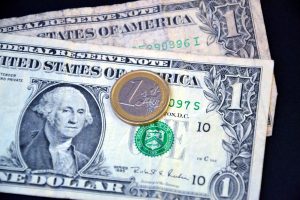In the realm of financial decision-making, traditional economic theory has long assumed that individuals make rational choices aimed at maximizing their utility. However, the reality often diverges from this idealized model, as human behavior is influenced by a myriad of psychological factors. Behavioral economics, a discipline that integrates insights from psychology into economic analysis, has emerged to elucidate these deviations from rationality and their implications for financial choices. This article delves into the role of behavioral economics in understanding and improving financial decision-making processes.
Understanding Behavioral Economics

Behavioral economics challenges the traditional economic assumption of human rationality by recognizing the prevalence of cognitive biases, heuristics, and emotions in decision-making. These biases, such as loss aversion and present bias, can lead individuals to make suboptimal financial decisions, deviating from what standard economic theory would predict. By acknowledging these deviations, behavioral economics provides a more realistic framework for understanding how individuals actually behave in financial contexts.
Implications for Financial Decision-Making
One of the key contributions of behavioral economics lies in its ability to shed light on why individuals often make decisions that appear to be against their best interests. For instance, the concept of loss aversion explains why people tend to prioritize avoiding losses over maximizing gains, leading to conservative investment strategies that may not yield optimal returns in the long run. Similarly, present bias elucidates why individuals often procrastinate saving for retirement or engaging in other financially prudent behaviors, as they prioritize immediate gratification over future rewards.
Behavioral Interventions
Recognizing the limitations of relying solely on education and information provision to improve financial decision-making, behavioral economists advocate for the implementation of nudges and other behavioral interventions. Nudges are subtle changes in the choice architecture that steer individuals towards better decisions without restricting their freedom of choice. For example, opt-out enrollment in retirement savings plans has been shown to significantly increase participation rates, harnessing individuals’ inertia to their advantage.
Comparative Analysis: Traditional Economics vs. Behavioral Economics
| Aspect | Traditional Economics | Behavioral Economics |
|---|---|---|
| Assumption of Rationality | Assumes individuals make decisions based on rational calculations aimed at maximizing utility. | Recognizes that human behavior is influenced by cognitive biases, emotions, and heuristics, leading to deviations from rationality in decision-making. |
| Approach to Decision-Making | Emphasizes logical deliberation and utility maximization as the basis for decision-making. | Acknowledges the role of psychological factors such as biases and emotions in shaping decision-making processes. |
| Policy Implications | Advocates for laissez-faire policies based on the assumption that markets efficiently allocate resources. | Recommends the use of behavioral interventions, such as nudges, to guide individuals towards better decisions while preserving their freedom of choice. |
| Understanding Behavior | Focuses on the economic aspects of decision-making, often overlooking the psychological factors at play. | Integrates insights from psychology to provide a more comprehensive understanding of human behavior and decision-making in economic contexts. |
| Predictive Accuracy | Limited predictive accuracy in explaining real-world behavior, especially in situations where individuals deviate from rationality. | Offers improved predictive accuracy by accounting for cognitive biases and heuristics, thus providing a more realistic depiction of how individuals actually behave in economic settings. |
Conclusion
In conclusion, behavioral economics offers a valuable lens through which to understand and improve financial decision-making. By incorporating insights from psychology, this discipline elucidates the factors that influence individuals’ choices and provides practical strategies for promoting better outcomes. From nudges to behavioral interventions, the application of behavioral economics has the potential to enhance both individual financial well-being and overall economic efficiency. As we continue to grapple with complex financial decisions, the insights gleaned from behavioral economics will undoubtedly play a crucial role in shaping policies and interventions aimed at fostering better outcomes for individuals and society as a whole.




